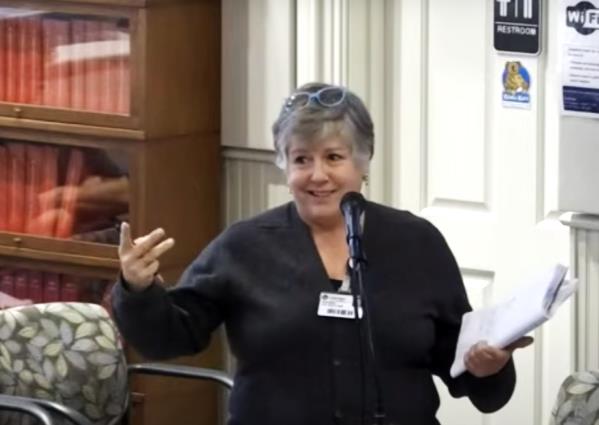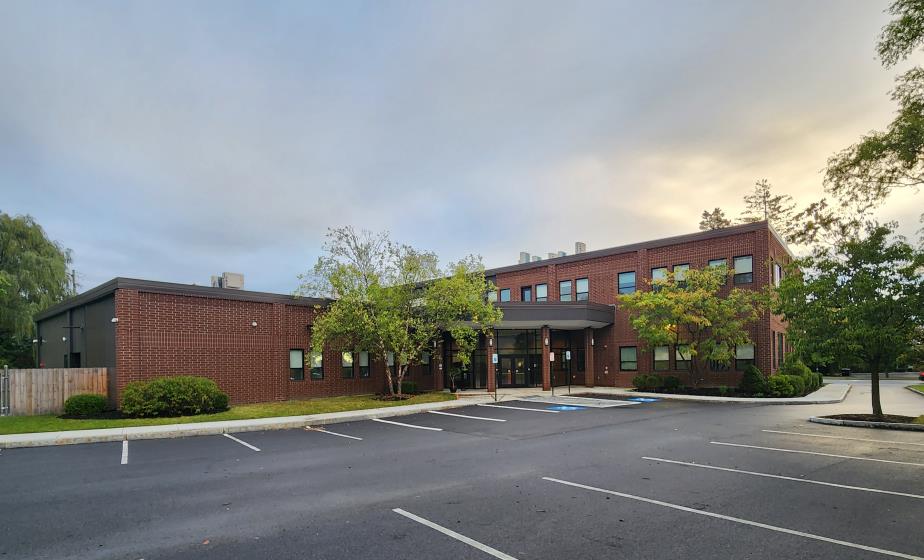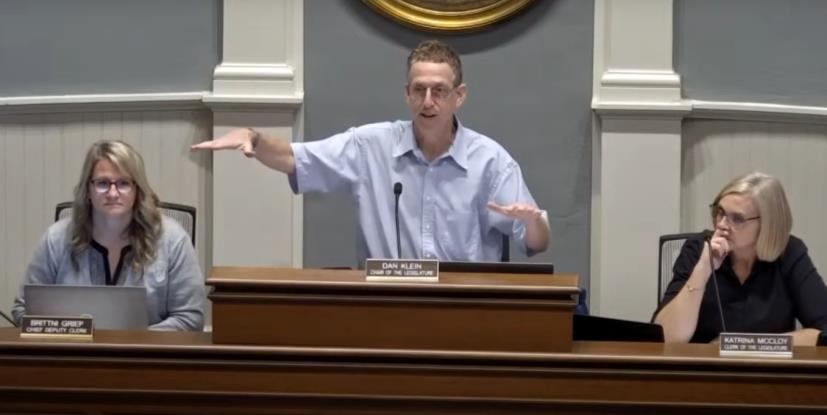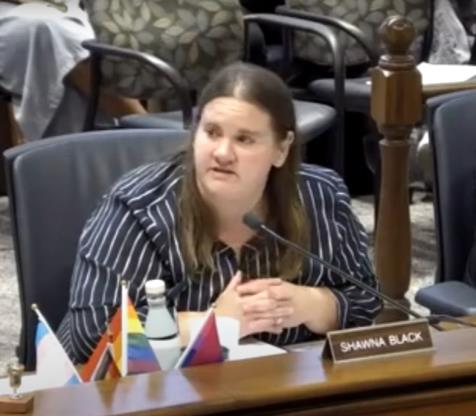$1.5 Million grant secures deadline-driven state OK
by Robert Lynch; Posted October 1, 2024; additional reporting October 2, 2024
The final piece has been put in place to secure Cayuga Medical Center’s access to the largest dollar award from Tompkins County’s $6.5 Million Community Recovery Fund, County and CMC officials confirmed late Tuesday. And the crucially-needed, long-delayed state approval for CMC’s Crisis Stabilization Center effectively shuts down the local program’s funding opportunities for others and leaves Enfield and its community agencies with nothing more from the program than a few Highway Department radios.

Despite the optimism that Tuesday’s disclosure prompted amongst lawmakers seated at the Tompkins County Legislature’s oval desks that night, a cloud of uncertainty hung over the room. What had Albany actually approved? What hadn’t it? And does the project still rest on the knife’s edge of bureaucratic review by not one state agency, but two?
“It seems everyone that’s involved in the project is saying that this is going to happen in the time frame that was laid out,” Tompkins County Legislature Chair Dan Klein, somewhat hesitantly, proclaimed near the end of the Legislature’s Tuesday night meeting, a session at which legislators also supported a separate CMC-sponsored “Withdrawal” Detox facility which may co-locate with the Stabilization Center.
Because of the tie-in, both clinics may quarter in a building across from the Lansing McDonald’s, rather than siting the Stabilization Center at the Shops at Ithaca Mall, as was earlier planned.
Awarded the Recovery Fund’s largest grant, $1.5 Million, in December 2022, the hospital-sponsored Crisis Stabilization Center has struggled to secure required state approvals by a year-end deadline that funding rules under the Recovery Fund’s federal money source had demanded.

Had CMC forfeited the cash, other applicants—including two from Enfield—might have become eligible to receive a portion of the proceeds.
County lawmakers had recently extended CMC’s deadline until September 30th to receive a yes-or-no answer. After Tuesday’s discussions, Dott Donnelly, CMC’s Chief of Staff, said the previously-undisclosed state approval came in within the past two weeks.
The Crisis Stabilization Center, geared toward mental health emergencies, “we will have open by the end of 2026,” Donnelly predicted. “We have to.”
Meanwhile, a much smaller, but similarly late-to finalize Recovery Fund award—this one to Khuba International, which proposed to establish a teaching farm in Danby—will apparently not meet funding deadlines. Yet no one else will catch the money it forfeits.
Khuba’s Danby approval “does not seem like it will be able to be accomplished in the time frame that we established,” Klein told the County Legislature Tuesday. “And so that money will be reallocated to an internal project from the County,” Klein said of the earlier-awarded Khuba grant, $74,086.
True, the County could seek new recipients for the Khuba funds. Yet given the federal American Rescue Plan’s fast-approaching year-end deadline, no one downtown seems eager to make the effort. The money may go, instead, to highway equipment.
Over the objection of Newfield-Enfield legislator Randy Brown and those (including this writer) who’d insisted Cayuga Medical had sufficient funds to build the Crisis Stabilization Center without public subsidy, the County Legislature authorized the $1.5 Million Recovery Fund grant to the hospital corporation nearly two years ago. Documents this writer received in July through a Tompkins County FOIL request confirmed a signed contract between in Tompkins County and CMC, one dated October 2nd of last year.

Yet at about the time of that contract’s signing, regulatory impediments arose, barriers that neither hospital officials nor legislators found themselves eager to detail publicly. The July FOIL packet provided little insight. About the only clue was that which Cayuga Health’s CEO, Martin Stallone, provided at a legislative committee meeting in September 2023.
Neither an “intensive crisis stabilization model” nor a “supportive-level model” were “successful with the State,” Stallone told the committee at that 2023 session. What regulators wanted instead, he said, was “a stand-alone psychiatric emergency room.”
Nothing stated by County or CMC officials this Tuesday addressed why the regulatory sands have so apparently shifted.
What has shifted, however, is the Crisis Stabilization Center’s preferred venue.
No longer would the mental health clinic occupy CMC’s set-aside space in the ever-shrinking Shops at Ithaca shopping mall. Rather, it would likely pair-up with a newly-vitalized “Open-Access Medically-Supervised Withdrawal and Stabilization Center,” a detox facility, also to be run by a Cayuga Medical appendage, at 2353 North Triphammer Road; its co-location pending state approval.
Yes, both CMC-run clinics have “Stabilization” in their names. But Dott Donnelly said that’s where the similarity ends.
“They are separate programs,” Donnelly told legislators. “Intensive crisis stabilization is the mental health portion of it. And withdrawal and stabilization is all related to addiction services,” she clarified.
What’s sought—and what Donnelly believes is likely to win state approval—“is to have a dual licensure in the same building so that we can run the mental health crisis stabilization center on the first floor of that Triphammer building, and alcohol and addiction on the second floor,” the administrator stated. “Ideally, we’d like to be in the Triphammer building because it’s a fantastic place to serve the clients.”
Yes, it’s easy to get confused about all this. One easily finds oneself at the peril of state bureaucracy, especially when dealing with a hospital corporation that keeps many interactions close to the vest.
If regulators reject the “dual licensure” CMC proposes, Donnelly indicated that CMC could segregate the two services, most likely quartering the Crisis Stabilization Service in the shopping mall, as first planned.
Although Albany’s authorization still sounds a touch tentative, Tompkins County Whole Health Commissioner Frank Kruppa, in a message relayed to the Legislature by Chairman Klein Tuesday, provided the firmest assurance that regulators sufficiently back the project to allow the Recovery Fund to offer its support.
“The New York State Office of Mental Health and the New York State Office of Addiction Services and Supports (OASAS) have Authorized Cayuga Medical Center to apply for an Intensive Crisis Stabilization ICS license that would allow them to operate and bill for a Crisis Stabilization Center,” Kruppa wrote Klein. “CMC has two potential locations for ICS… Either way, CMC should be able to provide us with a plan to use the $1.5 Million for the Crisis Stabilization Center,” the commissioner concluded.
Most legislative discussion Tuesday centered not about the Stabilization Center nor its Recovery Fund award, but about the detox facility. Legislators unanimously authorized administrators to execute a contract for pass-through state funding and followed their vote with applause. New York will provide the center $600,000 over each of the next five years.
“I thought it important that we note the moment,” legislator Rich John told colleagues, speaking after he’d pulled the detox center’s authorization from a laundry-list consent agenda and showcased it for a separate vote. “This has been such a long time coming,” John said. I think this is one of the most significant things the Legislature will do this year, if not more than this year. This has been a missing element for us for a very, very long time.”

“Hopefully in a very short time period they will have that building and those services up and running,” legislator Shawna Black said in applauding the CMC affiliate, Cayuga Health Partners, for its initiative. “I’m very confident in saying that I’m very thankful that there’s a local operation that’s stepped up to do this really, really important work that I believe will save lives over the years.”
In 2019, the Alcohol and Drug Council of Tompkins County secured state aid to operate a 40-bed detox facility at the Triphammer Road building that CMC’s program wishes to occupy. Fraught with financial and staffing challenges, the Council closed its Open Access Center last February, its service in many observers’ opinions having never become fully operational.
With the treatment gap realized, legislator Brown pressed CMC’s Donnelly as to how soon the detox facility might be up and running.
“I know that ASAP isn’t an appropriate answer,” and administrator responded. “But that’s kind of what it is…. I can’t tell you a timeline because I don’t know it. But it’s an ASAP thing, as carefully and as soon as possible.”
Of course, left in the dust by all of Tuesday’s revelations is the Town of Enfield. Two of its key agencies, the Enfield Volunteer Fire Company (EVFC) and the Enfield Community Council (ECC) became close runners-up for Community Recovery Fund support in the most recent funding round. The Fire Company had sought $50,000-$178,000 for capital improvements, including a possible fire house bunk room. ECC had requested $146,000-$206,000 to add a mental health wing to its community center.

Given Cayuga Medical’s late-stage access to its $1.5 Million award, the EVFC, the ECC, and scores of other Recovery Fund applicants county-wide now find their hopes dashed. The Community Recovery Fund has effectively closed. All Enfield ever received from it was $26,592 granted its Highway Department for new radio purchases. That’s about four-tenths of one per cent of the total.
Faced with the prospect that CMC might default on its funding for lack of state approvals, the County Legislature in August granted the hospital corporation an extra month, until this past Monday, to finalize its approvals. And CMC apparently did so, at least according to Dan Klein’s and Frank Kruppa’s Tuesday pronouncements, despite those approvals’ seemingly fragile façade. As far as County Government is concerned, the CMC deal is done.
But remaining a mystery is why New York State endorsements took so long. Pressed by this writer as we walked from legislative chambers Tuesday night, hospital Chief of Staff Donnelly shed little sunlight. Yet one may conclude that the stabilization center’s planned co-location with the detox center and its migration from the mall may have had something to do with it.
“This project had to go through a series of steps,” Dan Klein said earlier that evening, perhaps simplifying the regulatory labyrinth. “One of those is [the Resolution the Legislature passed that night],” he explained. “Simultaneously to that are the state approvals going on…. It’s all part of the same project.”
And yes, the absence of a financial component to CMC’s request to Albany helped smooth it along, Donnelly acknowledged. With regulators, she said, an attitude prevails: “No Money, No Problem.”
###

